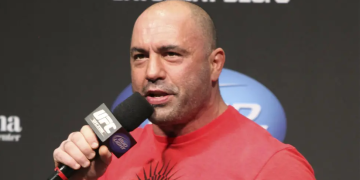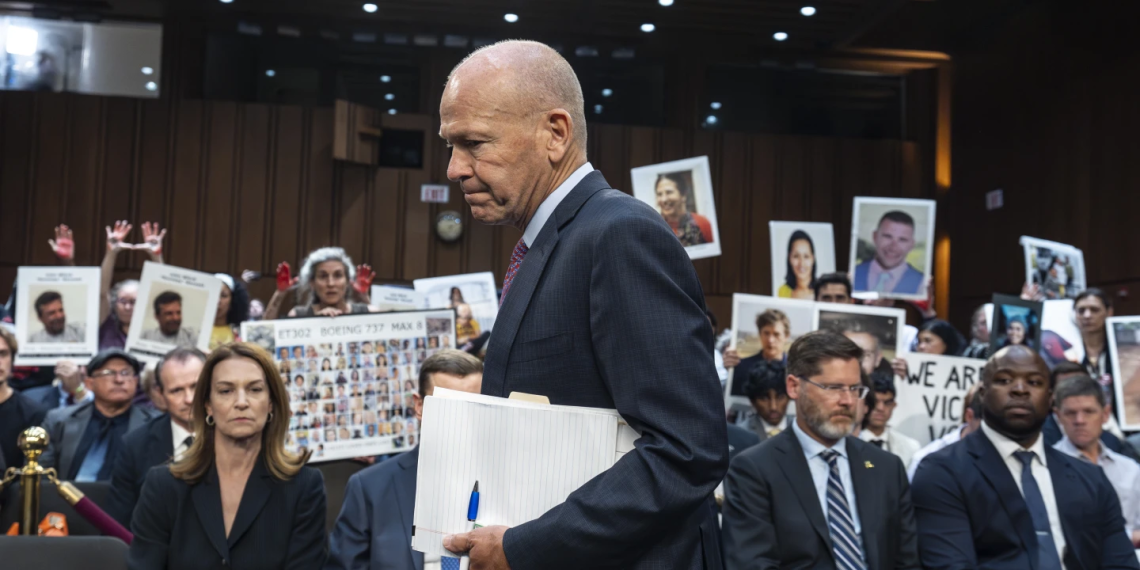Boeing has agreed to plead guilty to a criminal fraud charge related to the two fatal crashes of its 737 Max aircraft, which resulted in the deaths of 346 people. The U.S. Justice Department announced this development on Sunday night, stating that the company had violated an agreement that had shielded it from prosecution for over three years.
Federal prosecutors gave Boeing a choice last week: plead guilty and pay a fine or face a trial on the charge of conspiracy to defraud the United States. The plea deal, which requires judicial approval, includes an additional $243.6 million fine—the same amount paid under a 2021 settlement which Boeing allegedly breached. Additionally, an independent monitor will oversee Boeing’s safety and quality procedures for three years, and Boeing must invest at least $455 million in its compliance and safety programs.
The plea deal addresses Boeing’s conduct before the crashes, not covering other incidents such as a panel blowing off a Max jetliner during an Alaska Airlines flight in January. The deal also does not grant immunity to current or former Boeing officials, only the corporation itself. Boeing confirmed the agreement but declined further comment.
In a court filing, the Justice Department stated it expected to file the written plea agreement by July 19. Lawyers representing some crash victims’ families intend to ask the judge to reject the agreement. Paul Cassell, a lawyer for some of the families, criticized the deal, claiming it fails to acknowledge the gravity of the 346 deaths caused by Boeing’s actions.
Federal prosecutors accused Boeing of deceiving regulators about a flight-control system implicated in the crashes in Indonesia in October 2018 and Ethiopia less than five months later. The Justice Department had initially agreed not to prosecute Boeing in 2021 if the company adhered to specific conditions for three years, but last month prosecutors alleged Boeing had violated this agreement.
The guilty plea will be entered in a U.S. District Court in Texas. The overseeing judge, who has criticized Boeing’s conduct, could accept or reject the plea deal, potentially leading to new negotiations.
The crashes involved Lion Air and Ethiopian Airlines flights. In the Lion Air crash, pilots were unaware of the flight-control software that could push the plane’s nose down without input. Ethiopian Airlines pilots knew about the software but couldn’t control the plane when the software malfunctioned.
Following the crashes, Boeing grounded the 737 Max for 20 months and made software adjustments. The Max jets resumed thousands of safe flights, with orders increasing significantly over the years.
However, a January incident involving an Alaska Airlines flight prompted renewed scrutiny. The Justice Department opened a new investigation, and the FAA increased its oversight of Boeing.
A criminal conviction could threaten Boeing’s status as a federal contractor, though the plea deal leaves this issue to be determined by individual government agencies. Boeing’s substantial work for the U.S. government, including military contracts and a NASA capsule, underscores its importance despite the controversies.
Relatives of crash victims have called for a criminal trial to expose internal knowledge at Boeing regarding the deception of the FAA. They also want top Boeing officials held accountable.
Boeing CEO David Calhoun recently apologized to the victims’ families and defended the company’s safety record during a Senate hearing. The hearing followed a report from a whistleblower raising concerns about potentially defective parts in 737s, adding to the list of safety allegations against Boeing.
























